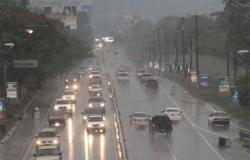Article published in Rojo y Negro no. 390 June.
In 2023, an interesting study was published in the magazine “Apuntes de Psicología”, signed by Isidro Maya-Jariego, Elena González-Tinoco and Andrés Muñoz-Alvis, with the title: “Frequenting places in neighboring neighborhoods affects the psychological sense of community: case study in the city of Seville. In this article it is clear that neighborhoods are a source of resources that protect us against the stressors of daily life: it is an obvious fact that the characteristics of the place in which we live generate living conditions and that well-being, better or worse, it is related to these. That is, permanent immersion in a stressful context causes not only a decrease in our quality of life, but also a deterioration in our physical and mental health.
The cited article establishes a direct relationship between poverty, inequality and health. The scientific literature published in this regard has previously confirmed this and has established that low-income neighborhoods have a higher rate of health problems: higher mortality, higher prevalence of chronic diseases and cardiovascular diseases, as well as a very significant worsening of the mental health and the consumption of psychotropic drugs. The study also emphasizes that “continued exposure to unhealthy physical conditions or stressful circumstances (for example, overcrowding, accumulation of garbage, pollution, traffic noise…), can have a direct effect on the deterioration of health; while the existence of green areas and parks (along with other settings in which physical exercise can be performed) are related to a lower prevalence of obesity, diabetes and hypertension. The same study highlights that urban areas better equipped with services are correlated with lower levels of anxiety-depressive symptoms.
With regard to the social environment, it is observed that a continued coexistence with violent situations, vandalism, crime, lack of public services, abandonment of urban infrastructure, consumption and trafficking of narcotics in shared spaces negatively influences health in generally affecting the residents in a different way, but always in a single direction, the disease. The increase in mental disorders is notable: anxiety, insomnia, depression, irritability and, ultimately, behavioral problems. Regarding the latter, it must be said that, in the youngest, the constant presence of behaviors that affect the common good, called antisocial or anomic, cause mimicry in them; That is, they learn or imitate these behaviors, either as forms of evasion or as signs of identity with which to transcend their precarious social condition, characterized by hopelessness about the future.
The study also highlights other interesting aspects that could indicate a line of work to follow in these neighborhoods, always acting at the community level because, just as precarious urban areas are a source of deterioration in the quality of life, they could also be sources protection against stressful situations and problems arising from daily life. For example, participation in the management of urban resources, mutual support between neighbors, the availability of community services… neighborhood self-organization generates greater cohesion in neighborhoods and coexistence, improves general health and reduces the probability of suffering from a anxious-depressive disorder. Johann Hari, in his book Lost Connections (2019), gives numerous examples on this topic recorded in the US, his country of origin: people who live in neighborhoods with a lower quality of life feel isolated and hopeless regarding their short and long term future.
The study cited in this article has been carried out in four neighboring neighborhoods in Ronda del Tamarguillo (Seville) characterized by being urban areas with different levels of socioeconomic resources. 225 residents participated in the research. The results cited above have also offered relevant evidence on the fact that residents in the most vulnerable areas have a lower sense of community and are more interested in other neighborhoods with better urban conditions to the detriment of the interest they show in their own. experiential context. These data have led the authors of the research to conclude that a detachment from your own area of residence necessarily leads to a distancing from the search for community solutions and, therefore, to an emotional and experiential distance between the neighbors themselves: “a “A strong psychological sense of community is related to higher levels of community participation and civic engagement and contributes positively to psychological well-being and perceptions of safety and security.”
Ángel E. Lejarriaga
Fountain: Red and Black






